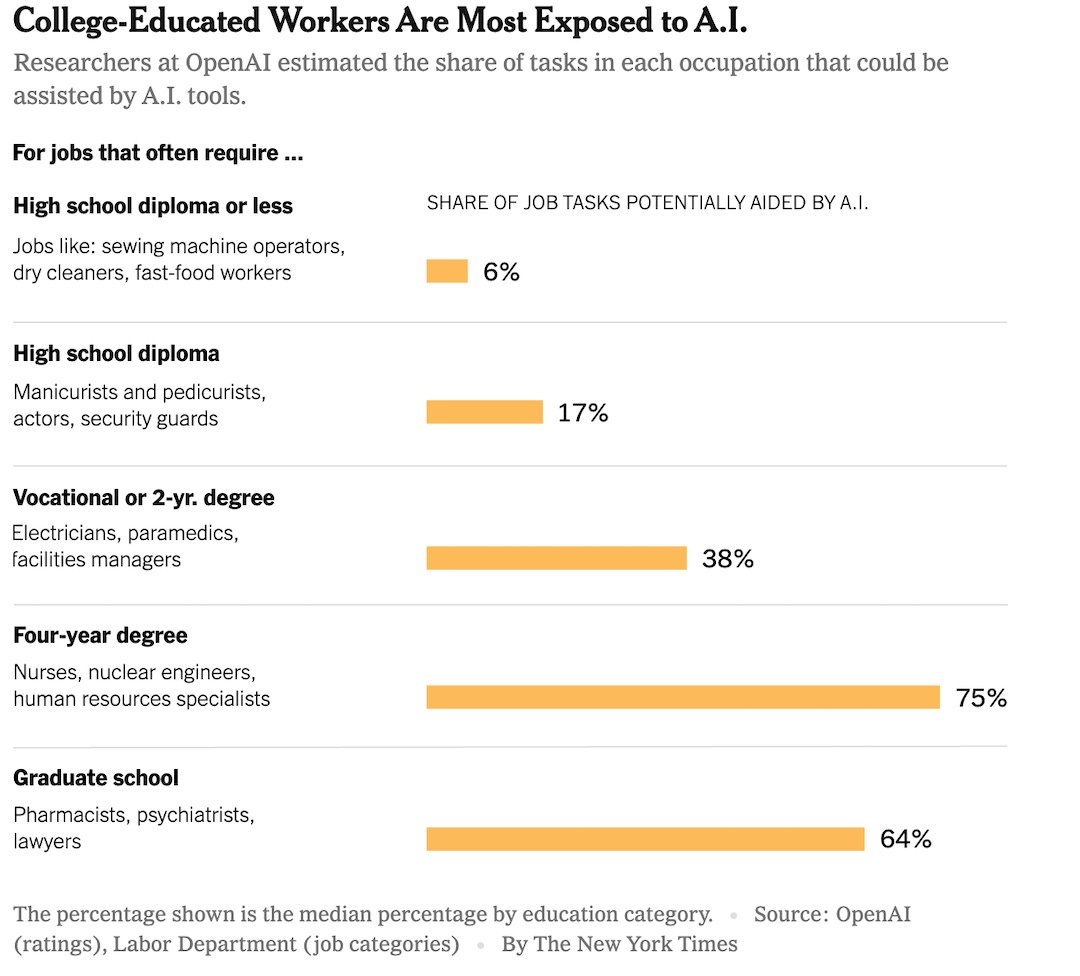Leveraging Waste.
Sometimes to make a point one needs to combine humor with some graphic visualization to break through.
Here are three examples that leverage “waste”.
The turd on the table
The grass is greener because it is fertilized with Bullshit.
No Flatulence does not smell like Chanel 5.
1. The turd on the table.
What is a turd on the table?
It is something that is brown and moist, and people know it is a piece of poisonous waste, but they pretend it is a brownie. They are aware of the stink but perfume over the aroma. Here are some flavors of turd:
Mismanagement. For instance, management (particular leaders or leadership teams) is disconnected from reality and refusing to acknowledge the facts—or they’re guilty of bullying, discrimination, or harassment.
These are incredibly touchy issues, since the former means confronting powerful people in denial and the latter means addressing an individual’s unethical or immoral behaviors.
Toxic cultures. Organizations are highly defensive about their cultures, even when they become cult-like and inflexible or fear-driven. Telling a leader that the culture has become poisoned requires courage.
Financial improprieties. Here, the problem may be a company over-inflating revenue, such as Enron, or one that takes short-term measures to goose the numbers, such as Wells Fargo. Confronting these improprieties that have major short-term benefits and may involve illegal or unethical actions is a challenge.
Major industry shifts. A leader may refuse to address big changes in customer behavior, or the competitive landscape, or mammoth technology changes requiring tough decisions (such as Kodak and digital emergence). It’s easier to rationalize or deny shifts than articulate the business-altering trend and the need for rethinking everything.
People problems. The boss or some person with influence is acting like a jerk, or is playing favorites, or is blind to internal or external developments. In many ways, this is the biggest turd on the table, in that it requires confronting a powerful individual about his or her issues.
How to become a turd slayer?
Do not fear the turd.
Call it out. Shine a bright light on it. Place it on a pedestal. Address the damn thing!
Here are some suggestions for you to become a “turd slayer”
Say what you think. In business we care what is between your ears. If you cannot say what you think (hey if it is wrong you will be told so, in fact even if you are right you will be told you are wrong…). Truth eventually has a habit of breaking in. Why not open the door and save time and damage?
Assume the person you are trying to be diplomatic to about an issue knows what the issue is. If you bring it up, you will be more respected by them. If they did not know, you will earn an ally.
Do not go with the crowd if your instinct says no. Often group and crowd dynamics take over in much decision making. People think about what their boss wants to hear rather than what they should say. People worry about the impact of their career rather than what is right. Sooner or later too many people are dodging their own shadow and playing mind games that lead to slow and bad decisions.
Do not work for a boss who cannot bear the truth or whom you fear. We are living in a time of change and most of the time senior folks need to be told that their core beliefs may no longer be true. I have seen too many companies from newspaper to magazines to many other companies hasten their decline because their leadership did not face reality, in part because their staff was scared of them. Tell all the truth but tell it slant: Once you have decided to address the turd on the table, you might want to do so in a way, so the message gets through. Ideally it is in a way that does not make the person receiving the news “lose face” so much of this is best done person to person. In other times some humility, self-awareness, metaphors or humor will be called for. Emily Dickinson says it best in her poem, too much of shock and you will have blinded someone to the turd!
Tell all the Truth but tell it slant Success in Circuit lies Too bright for our infirm Delight The Truth must dazzle gradually Or every man be blind
So, let’s address the “turd on the table” wherever it might be.
2. The grass is greener on the other side because it is fertilized with bullshit.
Most jobs are difficult and challenging.
A great job is one which you enjoy and find meaningful 70 percent of the time.
Thus even a great job has days, or weeks or sometimes months where it sucks for a combination of circumstances from revenue setbacks, management drama, talent soap-opera, client intrigue, geo-political shocks, bad calls and more.
If you enjoy what you do 100 percent of the time you are likely not working for anybody or are not being challenged nor stretched so you may be not growing or maybe you are in a coma.
All companies big and small tend to be filled with constant change and challenges which sometimes leaves one feeling out of sort.
The boss we know is a task master, our team sometimes appears to be filled with more buffoons than talent, our Clients from time to time seem to lose their minds, or we are dazed and confused with the change happening around us.
At this time we are so aware of the problems we face that we imagine it is wonderful somewhere else, and are particularly susceptible to fleeing the challenges we know to the siren call of wonder being described by someone trying to recruit us,or the allure of another firm or opportunity.
The other opportunity maybe better but is unlikely to be as wonderful as it is advertised since every company on the inside tends to not look as wonderful from the inside.
Importantly, wherever there are people there is drama, wherever there is change there are challenges, wherever there are P&L’s there are hard decisions, and wherever there is competition there is the potential for business losses.
Too many people flee from one frying pan and fling themselves onto another but now have to learn a new company, build new relationships and re-build internal and external connections.
Switching jobs is often necessary but as one does so be very careful and realize that the grass is greener on the other side because it is often fertilized with bull shit.
Once the romance of courting and the honeymoon of a new adventure have passed one finds that wherever we go the challenges and dramas seem to follow.
3. Flatulence does not smell like Chanel 5.
Today due to our location, income level, choice of media or the algorithmic realities of a digital age which optimize everything around us to make us feel we are the center of the world, we often lose the plot.
This is particularly true in a polarized world where we fail to see or demonize the other side. Taking complex issues, people and challenges and simplify them into silly caricatures of black and white, all good or all bad.
In organizations this ability to lose a sense of reality is likely to happen among elite and powerful people who are surrounded by or ensure that they are surrounded by supplicants, glad handlers, toadies, courtiers, minions, gatekeepers and other genuflectors who confirm biases, double down on delusions, or hyper drive hallucinations to keep bosses happy, remain on their good side while protecting and advancing their own careers.
There are many benefits of being a leader, working at a very successful company and being on the top of the world. Everybody wants to meet with you or think you are cool because of the fame and reputation of your company. The press fawns and friends’ gush.
It gives powerful people a great rush and some get too high on ones own fumes and begin to believe their flatulence smells like Chanel 5.
It does not.
The Transformation of Work.
Anyone who joined the workforce before January 2020 would most likely not have been familiar with the following terms: AI, Remote-Hybrid Work, Web 3, NFT’s, Spatial Computing, GPT, Metaverse, “Woke”, or “Quiet Quitting”
Today, in every organization large and small THE critical discussions are a) about the coming impact of technology from AI to Web3, b) the future of the workspace as firms struggle to manage the balance between remote and in-presence work, and c) the shifting beliefs about work driven by the emotional impact of Covid and new generational mindsets.
The where, who, what and why of work have transformed more in the past four years than in any decade or more before.
Talent is asking their mangers what do you do?
Management is asking their talent to work harder, show-up and grow-up.
IBM and Gallup release research indicating that many jobs will disappear and almost all jobs will be transformed by AI.
Apple, Meta, and other companies continue to believe that despite recent setbacks the future of computing will increasingly be three dimensional and spatial, changing how and where we work.
Every company is grappling with how best to be inclusive while also ensuring they can attract and retain talent whose mindsets have changed from one balancing work and life to one asking how work fits into their lives?
Across all companies of every size and in every category, the single biggest question is “How do we remain relevant in transformative times?” Not just relevant as businesses grappling with new business models and competitive landscapes but as individual talent and leaders facing a future that seems to be shape-shifting constantly.
One way to remain relevant in these times is to a) truly understand ALL the factors that are in flux and not expect that mandates that force people back to the office are likely to solve the challenges we face, b) to re-train and upgrade our mental and emotional operating systems to align with new realities and c) both learn and unlearn so we can deal with the changing Where, Who What and Why of work.
1) Where: The future of work will most likely be hybrid with different companies combining talent in some combination of in-person/in-office presence and remote work. Even if one’s own company is fully remote or fully in-person a firm’s future talent and existing partners and Clients are likely to have their own unique ways of combining in-person and remote or in global firms’ different countries will have different models. In addition, in the United States by 2027 the free-lance work force will be bigger than the full-time work force meaning that many companies will have talent outside the firm working with people in the firm. Thus, it will be key to learn to manage and communicate diverse across different models of work.
In person interaction is critical for learning, relationships and culture but to ensure that its benefits are maximized we need to think places ( events, restaurants/bars, offsites, and programming learning and interaction in an office) as a spectrum of ways to leverage the benefits of being together vs bringing people into an office to do what they did at home with headphones on their ears and hustling to find cubicles in spaces that have been optimized for a world that has past.
In addition, lets also realize that it is management as much as staff that needs to learn how to lead and coach versus boss and monitor which may be the real issue on the where one works question. Management which has not been trained or sensitive to know how to manage a new paradigm of work cannot solve this shortcoming by forcing people back to the office!
Also after years of companies swearing by data, personalization and the need for agility a one size mandate model is neither data driven, personalized or provides the flexibility needed for an agile world.
2) Who: In the United States the population under 21 years old is already Caucasian minority and over forty percent of the population is multi-ethnic. Every new hire graduating from school is likely to be a “minority” though the “minorities” now are greater than the “majority”. It is not just a change in ethnicity but a different make up in gender (far more women at work and far more women than men graduating from school every year) and sexual preference (13 percent of the population define themselves different than straight).
66 percent of baby boomers believe in capitalism while only 22 percent of Generation Z do. In addition, we are likely to see a significant aging of the workforce as populations shrink, the country gets older, and companies work to find ways to retain talent and skills even if in a part-time basis. And the free-lance population which will be greater than those fully employed wonder about this fixation on where one works.
3) What: IBM believes 30 percent of jobs will be replaced by AI in 5 years.
While there can be a debate about jobs lost there is less debate about jobs changed.
A recent survey by the New York Times indicated that “A range of new research has analyzed the tasks of American workers, using the Labor Department’s O*Net database, and hypothesized which of them large language models could do. It has found these models could significantly help with tasks in one-fifth to one-quarter of occupations. In a majority of jobs, the models could do some of the tasks, found the analyses, including from Pew Research Center and Goldman Sachs.”
Basically, up to 75% of white-collar jobs that required a GRADUATE DEGREE will be changed by AI, with 64% of Four-Year Degree jobs but only 6 percent of jobs that require a high school degree will be impacted.
The more educated the more likely that AI will impact one’s job. This July 2023 Pew Report is a must read to see how you and your job might be impacted by AI: https://www.pewresearch.org/social-trends/2023/07/26/which-u-s-workers-are-more-exposed-to-ai-on-their-jobs/
Having ones job impacted by or exposed to AI does not mean one will lose one’s job or lose pay but it means that everyone will need to a) embrace the technology, b) adapt their ways of working utilizing AI as a co-pilot, side-kick, first-draft thought starter to build on and c) companies and talent will need to build and hone skills that complement the AI which are likely to be those of empathy, curiosity, communication, collaboration and new forms of creativity.
Or as someone said it is not a human who will lose their job to AI but to a human who is using AI if they themselves refuse to use it.
But AI which will be a critical technology is not the only one that will have great impact. The concept of 3 D spaces whether we call it Metaverse, Virtual Reality or Spatial Computing will require new sets of skills to navigate and manage and find ways to sell and build brands and companies.
4) Why? There is a changed relationship between people and work driven by a) the existential crisis that was Covid which gave people a new sense of agency over not just their personal lives but work lives b) the completely different mindset of Gen-Z who will be a third of all employees and have not chosen to sacrifice themselves for their jobs and c) a declining population which is placing more power in the hands of employees and talent.
The chart above from Deloitte shows that the focus on personal change and well-being might be helping to tip the scales of work-life balance. Compared to one year ago, the percentage of consumers who feel they are finding more time to enjoy today (34%) significantly outnumbers those who feel they are working harder to get ahead (22%) ). This is a healthy portion of people prioritizing their personal time over working more, particularly considering the financial challenges many faced throughout the pandemic and rising prices for everyday purchases.
"It is not where work takes place but where work fits into life"
"It is now about life-work integration not about life-work balance"
Heather E. McGowan who in both business and academia and has been called by Tom Friedman an"Oasis of Insights"was a guest on “What Next?” a podcast I host.
She shared amazing ideas and thoughts on how managers cannot lead by using the ways they were lead, how coaching is key vs bossing because the future is about collaboration and not competition and Gen Z will spit your command into your face.
Listen below:
These four shifts of a new work force, a new workspace, a new set of enabling work technologies and a new mindset have all emerged in the past three years and will scale and transform business.
In a world of such change it will be critical for all of us to upgrade our own skills and be retrained for the transformation of work versus thinking this is about finding a silver bullet like getting back to the office.
Vagabonding.
Photography by William Neill
Vagabonding is an outlook on life.
Vagabonding is about using the prosperity and possibility of the information age to increase your personal options instead of your personal possessions.
Vagabonding is about taking an extended time-out from our normal life-six weeks, four months, two years-to travel the world on your own terms.
Vagabonding is not a lifestyle, nor is it a trend. It’s an uncommon way of looking at life-a value adjustment from which action naturally follows. And as much as anything, vagabonding is about time-our only real commodity-and how we choose to use it.
Vagabonding has never been regulated by the fickle public definition of lifestyle. Rather, it has been a private choice within a society that is constantly urging to do otherwise.
Have a library of over one hundred travel books including all the classics and among the best is a simple book published over twenty years ago that is book about travel but also a book about living called Vagabonding by Rolf Potts which reminds us that we and nobody else must determine how we live.
Vagabonding is a book about living that choice.
Before it is too late.
Below are extracts (italicized) from the book as well as quotes mentioned in the book (bolded).
Photography by William Neill
If you have built castles in in the air, your work need not be lost: that is where they should be. Now put foundations under them. - Henry David Thoreau, Walden.
Your travels are not an escape from real life but a discovery of your real life.
Regardless of how long it takes to earn your freedom, remembering you are laboring for more than a vacation. A vacation, after all, merely rewards work. Vagabonding justifies it.
Indeed, the freedom to go vagabonding has never been determined by income level; it’s found through simplicity- the conscious decision of how to use what income you have.
There is an insanity of consensus, if you will- to get rich from life rather than live richly, to “do well” in the world instead of living well.
Money is of course needed to survive but time is what you need to live.
Unfortunately, life at home cannot prepare you for how little you need on the road.
Travel can be a kind of monasticism on the move: On the road, we often live more simply, with no more possessions than we can carry, and surrendering ourselves to chance. - Pico Iyer, Why We Travel
Photography by William Neill
The discoveries that come with travel, of course, have been considered the purest form of education a person can acquire. “The world is a book” goes a saying attributed to Saint Augustine, “and those who do not travel read only one page”
A good traveler has no fixed plan, and is not intent on arriving. - Lao-Tzu, The Way of Life
You can read everything there is in the world about a place, but there is no substitute for smelling it. - Bill Wolfer, Musician
Excitement and depression, fortune and misfortune, pleasure and pain are storms in a tiny private, shell bound realm-which we take to be the whole of existence. Yet we can break out of the shell and enter a new world. - Eknath Easwaran
On the road, you learn to improvise your days, take a second look at everything you see, and not obsess over your schedule.
We see as we are. If you view the world as a predominantly hostile place, it will be. By this same logic, of course, a positive world view can lead to inspiring, human-centered experiences.
Adventure is not an experience that can be captured on television or sold like a commodity Real adventure is not something that can be itemized in glossy brochures or sport magazines. In fact, having an adventure is sometimes a matter of going out and allowing things to happen in a strange and amazing environment-not so much a physical challenge as a psychic one.
The secret of adventure, then is not to carefully seek it out but to travel in such a way that it finds you.
Photography by William Neill
Travel is often a matter of confronting our fear of the unfamiliar and the unsettling. - Tim Cahill, Author
Adventure is wherever you allow it to find you- and the first step of any exploration is to discover its potential within yourself.
Explore your own highest latitudes. Be a Columbus to the whole new continents within you, opening new channels, not of trade but of thought. - Henry David Thoreau. Walden
Thus, travel compels you to discover your spiritual side by simple elimination: Without all the rituals, routines and possessions that give your life meaning at home, you’re forced to look for meaning within yourself.
After all , a journey is a temporary diversion, and there would seem to be little reward in the “common miracles” it promises. That is, until you realize that life itself is a kind of journey.
Both Sides Now!
Photography by Bruce Barnbaum
The most successful organizations and leaders are rarely defeated.
They defeat themselves.
Three common symptoms of SDD or ‘self-defeat disease” are:
a) the inability to anticipate new competition,
b) a failure to see situation from another perspective,
c) self delusion due to a bubble of filtered thinking buttressed by sycophantic deputies.
One simple exercise to avoid this fate is to make it a point to see or demand to be shown or insist on trying other options and approaches opposite to ones recommended.
To always insist on both sides now!
Three simple exercises one can apply every time a key decision needs to made are 1) to integrate outsider perspectives, 2) to unite two diametrically different models and 3) to balance roots and wings.
Photography by Bruce Barnbaum
Think like an outsider/immigrant.
Earlier this week a long time friend of mine, Lou Paskalis, was in Chicago. During a drive I shared some key themes from a keynote I had given earlier in the week to a legendary company aiming to be bolder to ensure their continued leadership in a changing world.
One key point I conveyed was the importance to look at things from an outsider’s perspective or that of an immigrant.
While not all of us are immigrants to a country we are always entering new companies, new jobs, new cities and when we arrive we come without the baggage of knowing and the wonder of fresh eyes and thinking. We wonder why certain things are the way they are and our acts of noticing and curiosity are acute. This allows us to bring in fresh perspectives. It is one of the reasons successful firms combine experienced individuals with long tenure with new external talent.
Lou mentioned that one of his bosses at American Express (the legendary John Hayes) had given him similar advice when Lou had just been hired by saying “Lou do not become one of us”.
It is important that individuals while they respect and align with a culture of a firm do not get assimilated by the Borg ( Star Trek!)
If one like the Mandalorian and begins to believe “This is the Way” we will be beaten by the Lawrence of Arabia’s who say “Nothing is written”
Combine an insiders understanding with the provocative thinking of an outsider.
Both sides now!
Photography by Bruce Barnbaum
Only the Schizophrenic Thrive.
Andy Grove the late CEO of Intel once wrote a book titles “Only the Paranoid Survive”
Today we are living in a connected and constantly shape shifting world and paranoia is a recipe for decline as Intel has suffered from.
One cannot succeed without collaboration, partnering and trusted relationships.
Seeing all outsiders as the enemy to be resisted or defeated is a recipe for irrelevance.
Microsoft under Balmer followed this “Windows good everything else bad” paranoia approach and it took a partnering oriented “Linux is also critical” and it is “Azure no longer Windows” Satya Nadella to turbocharge Microsoft.
Companies need to optimize for today AND re-imagine for tomorrow sometimes with different teams with different incentives and goals to ensure continued relevance.
The biggest mistake is to somewhat focus on today with a leadership team incentivized for today while running “task forces” and “models 2.0” as a side project with a diluted focus on tomorrow ( a second class team with a limited budget and constraints told not to rock the boat or destroy the existing business model).
These optimize neither today or tomorrow but create a warm goo of board documents and sinecures for people the company does not know what to do with (notice how many tomorrow projects are run by individuals who did not do a good job running today ?).
Instead, empower some real superstar talent with real budgets and minimal constraints to do what it takes to win tomorrow or put today’s firm out of business while also having world class teams focussed on delivering the margins and leadership needed today to fund tomorrow.
Two models acutely focused. The first on today and one on tomorrow both reporting to the Board and CEO.
Both sides now !
Photography by Bruce Barnbaum
Roots and Wings.
If every individual and company is a story with a place we came from, every individual and a firm is also about a place we are going to.
The best leaders and firms all integrate the dualities of roots and wings.
Too rooted and we may wither way as changing times and climate bring drought to the place and way we were.
Too winged and we may be blown away in the gusts of change.
Too rooted and we may be seen as old school, hide bound to tradition and inflexible.
Too ready to fly with change may find us painted as unreliable, undisciplined, and short-term oriented.
Transformation is twisting ourselves and companies into new shapes with the clay of what we were and new skills and pieces we acquire.
To believe and better understand where you are going people want to know from where you are coming.
Heritage, provenance, legacy, story, first principles, and foundations are all critical.
So are re-invention, setting sail, taking risks, pioneering and re-imagining.
Roots and wings.
Both sides now!
Attention.
Photography by Karl Taylor
A definition of success is the freedom to spend time in ways that gives one joy.
Joy is more than happiness which is often transitory as it ebbs and flows with external events.
The joy that comes with deep satisfaction and contentment however endures and its contours do not waver with the oscillations of the transient.
Experience, time, and observation reveals there are ways to architect joy.
To be free to use your time to pay attention to what matters and what matters to you.
Or as the late David Foster Wallace said in his mind shifting talk This is Water:
“The important kind of freedom involves attention and awareness and discipline and being able truly to care about other people and to sacrifice for them over and over in myriad petty, unsexy ways every day. That is real freedom. That is being educated and understanding how to think. The alternative is unconsciousness, the default setting, the rat race, the constant gnawing sense of having had, and lost, some infinite thing.”
Every day there are more and more things that vie for our attention. This has been true long before algorithmic social media or soon the customized cuddle puddles of applied statistics ( also known as AI) transforming code to vie for our attention.
In “Things of the World” the poet Kay Ryan writes:
“Wherever the eye lingers
it finds a hunger.
The things of the world
want us for dinner.
Inside each pebble or leaf
or puddle is a hook.
The appetites of the world
compete to catch a look.”
Above is a cover illustrated by the cartoonist Chris Ware from nearly 15 years ago for the New Yorker described by Francoise Mouly, the Art Editor of the New Yorker.
“Chris aims at pinning the butterflies of our most basic and universal emotions. His beat is daily life: how we relate or fail to relate to each other. For a Halloween cover, Ware stayed away from the usual Halloween signifiers of kids in costumes, pumpkins and straw, colorful candy. He condensed the Halloween narrative into the upturned faces of the children as they knock on a door-and behind them on a street, the parents faces turned downwards towards their phones. Both are slivers of white masks, the parents faces illuminated by the light of the phones. The eager young excitement and the jaded boredom exist in perfect contrast…”
Photography by Gary Winogrand
The Garry Winogrand Way of Seeing
Garry Winogrand who died in 1984 was the first digital photographer decades before digital in that he was not constrained by the scarcity of film and took over a million pictures. He combined a disinterest in technique with an obsessive devotion to shooting on the street all day, every day.
Garry was most alive when he was outside of himself which was when he was behind a camera lens. He once said “I get totally out of myself. It’s the closest I come to not existing, I think, which is the best – which is to me attractive.”
To him seeing was key:
“Sometimes I feel like … the world is a place I bought a ticket to,” Winogrand once said. “It’s a big show for me, as if it wouldn’t happen if I wasn’t there with a camera.”
“When I’m photographing, I see life.”
Garry Winogrand suggests to see better we need to look more often, look with different perspectives and look where others do not.
Photography by William Eggleston
Experience, time, and observation reveals there are ways to architect joy.
What makes the ordinary and every day extra-ordinary is that one day it will not be so.
There will be a last day a child will crawl. A last day you will see someone. A last day you will visit a place or drive a car or go to a restaurant. Sometimes we know the last times and often we do not. When we are aware of the last times, we have a higher sense of attention and a sensitivity to the specialness and the passing of the moment.
But these last times come every week and sometimes every day.
The ordinary becomes extra-ordinary when we pay attention, and we find poetry in the crevices of every day.
As some of you may have noticed, a couple of weeks ago, I offered a FREE spot at the Quilt AI event in NYC on Sep 06, 2023. My post received an overwhelming number of requests which far exceeded the slots I had. I spoke to the Quilt AI team (am on the Board) and have received a few more FREE slots. And all attendees will receive an autographed copy of my book.
Titled the “AI-volution of Culture”, it is structured as a day of blending AI and Culture (or math and meaning, as I like to call it) to drive better marketing.
This is the link for registering for the event: Culture eats AI
Please use the free code: rishadxquilt
Speakers in addition to me include:
Gillian Tett, Chair of the Editorial Board, Financial Times
Jeremiah Lowin, the CEO of Prefect and Marvin AI
Deepa Mehta , the Oscar nominated filmmaker
Bhaskar Chakravorti, the Dean of Global Business, Fletcher School, Tufts University
Luke Burgis, Author & Entrepreneur
David McCandless, Journalist and Designer
Katherine Ann Paul, the Curator of Asian Art, Birmingham Museum of Art


























